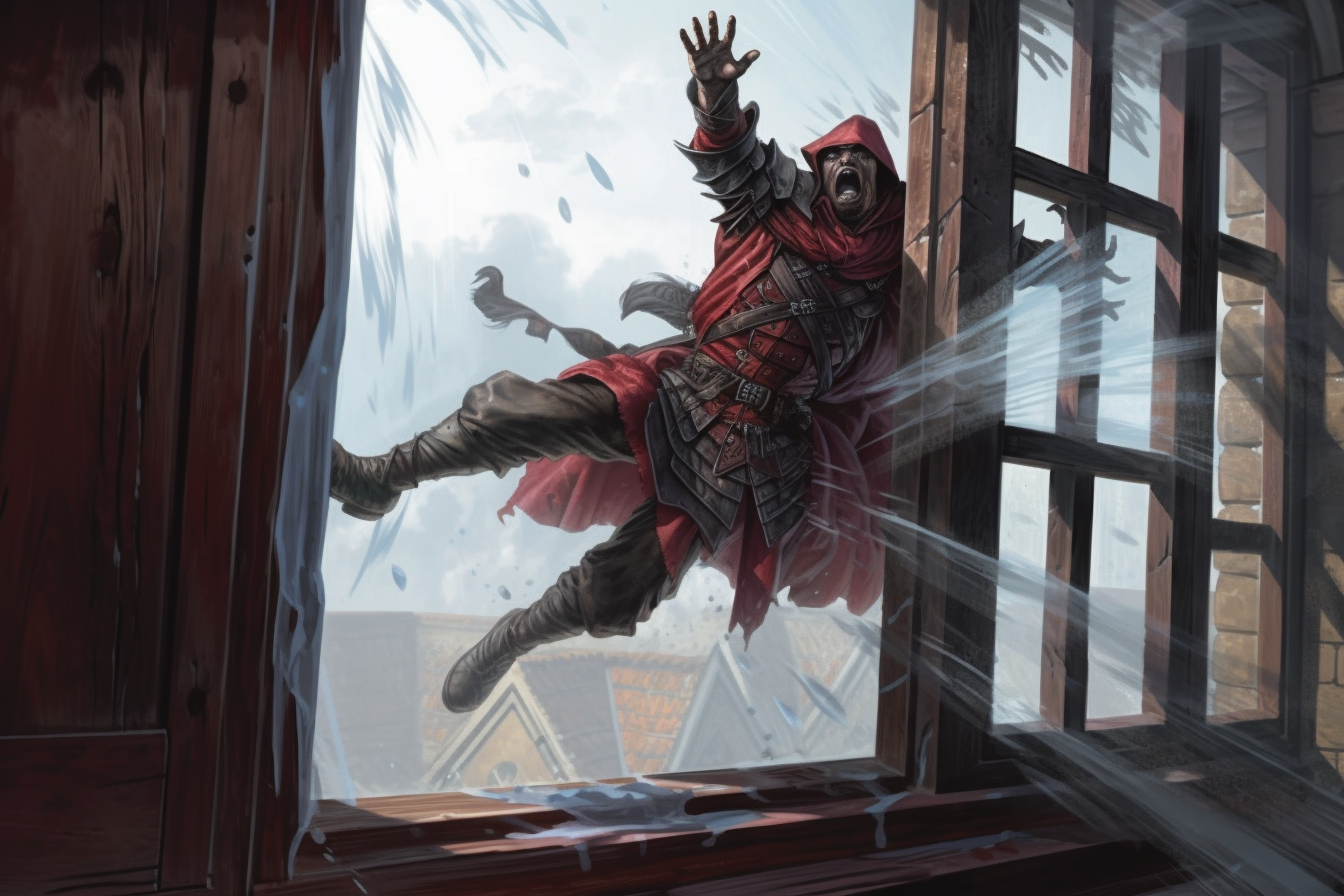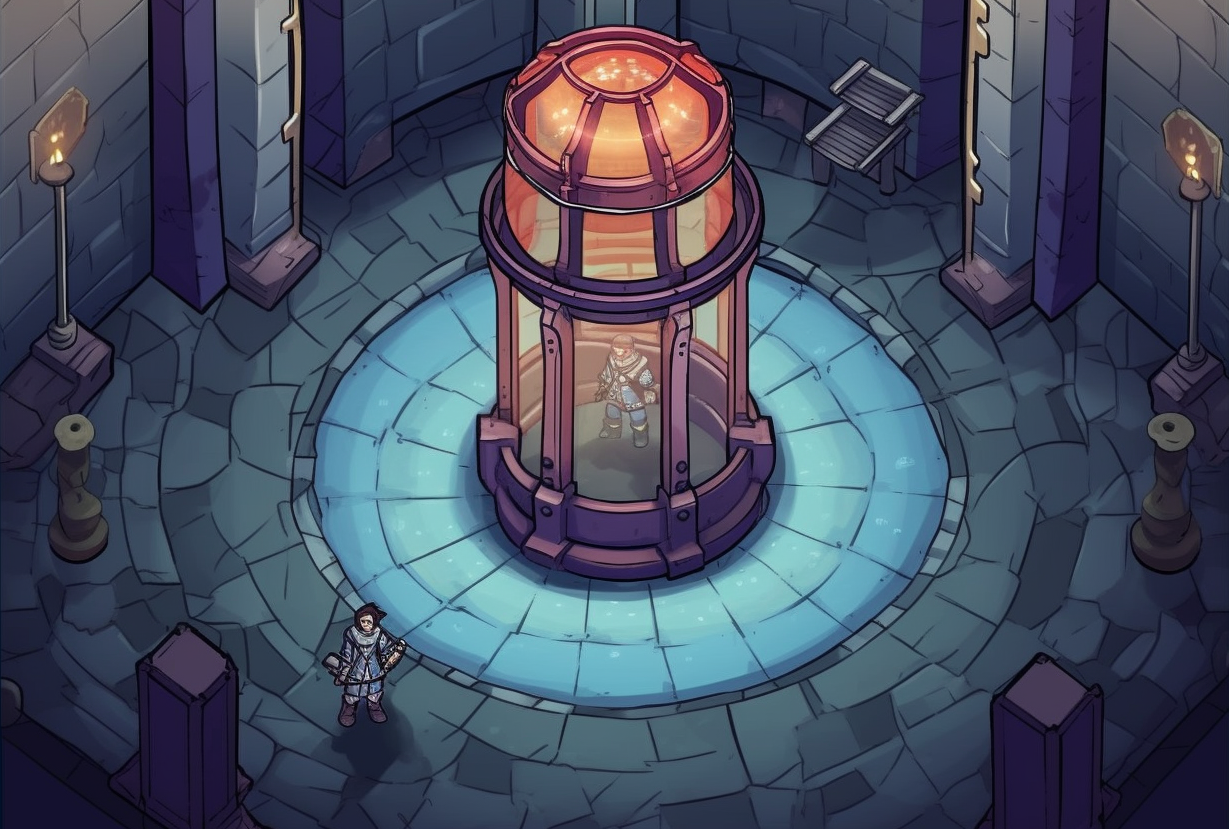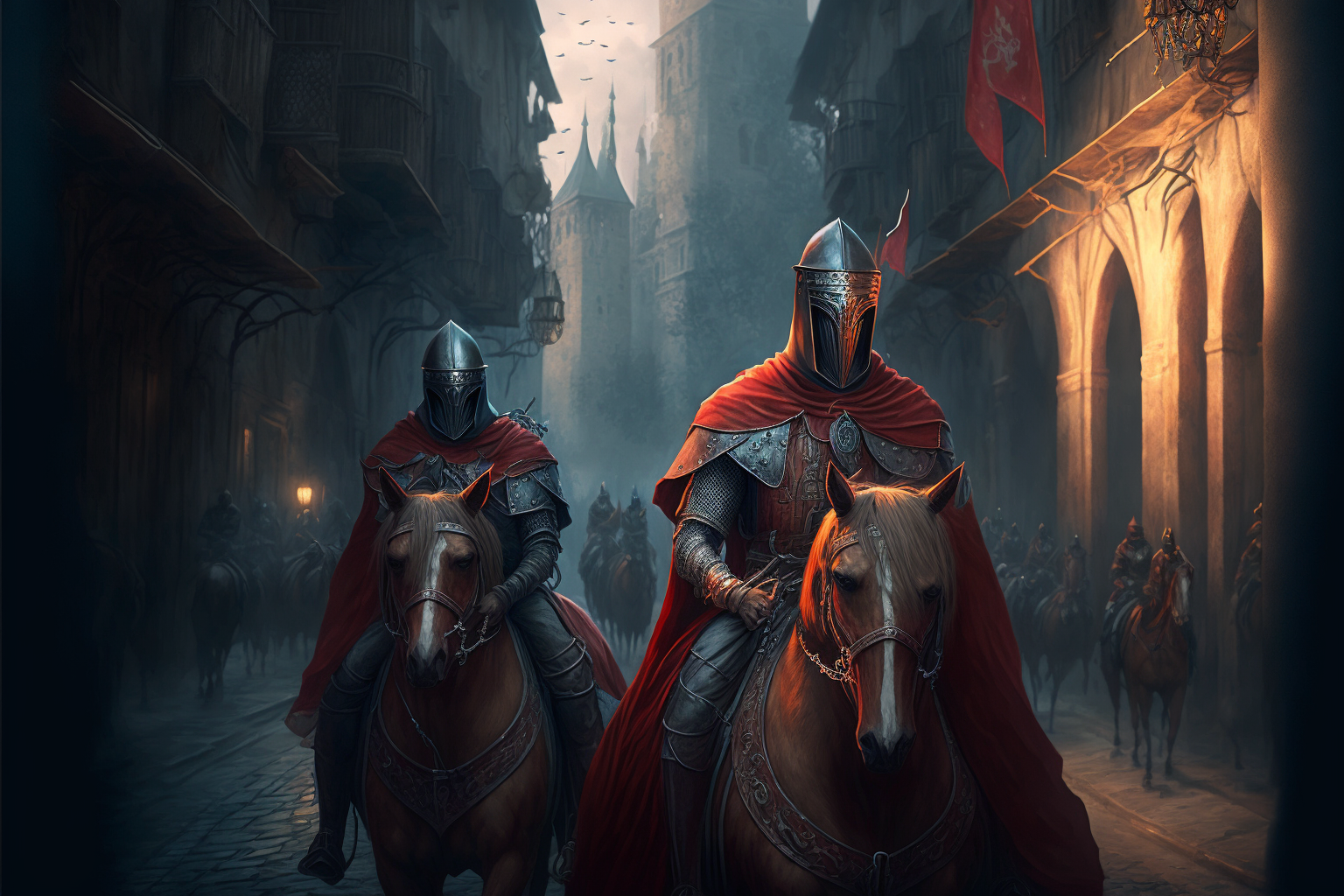
SESSION 32B: SHAPED BY VENOM
December 20th, 2008
The 18th Day of Kadal in the 790th Year of the Seyrunian Dynasty

ENTER THE CULTIST
Tee, who had taken up a position at the top of the staircase to serve as a look-out, heard a door open below. She snuck down the stairs and looked down the central hall on the first level… just in time to see someone disappear around the far corner of the hall into the front entryway.
Signaling silently to the others above to follow her, Tee made her own way down the hall. Agnarr, oblivious to all of this, continued poking around through the largely deserted complex of rooms he’d dropped into.
Tee peeked around the corner into the entryway: One of the doors on the northern side of the room was slightly ajar. She took a few moments to consider her options while the others crept down the hall behind.
But before she could reach a decision, Agnarr finished exploring the rooms he was in and emerged – loudly – into the entryway through a different door.
As he did so, the slightly ajar door burst open and two venom-shaped thralls charged through. Agnarr took half a step back and drew his sword to defend himself—
But at that moment, a beam of scintillating energy shot out from a second door – only slightly cracked – and struck the barbarian in the chest, paralyzing him completely. Agnarr was completely defenseless as one of the thralls thrust its lance-like claw through his chin and up into his skull, killing him instantly.
Ranthir – seeing Agnarr fall – threw a fireball into the entryway. It exploded spectacularly. Tee seized the opportunity to tumble past the two large thralls. Bursting through the door from which the beam of energy had come, she saw the spellcasting cultist backing away. With a single bounding leap she was on him, viciously cutting him across the chest.
The cultist fumbled a potion of healing to his lips and raised his other hand to cast a spell – but then his eyes grew suddenly large as a cocoon behind Tee suddenly belched forth a swarm of chaos beetles.
Tee ducked back out of the room and slammed the door shut. The last thing she saw were the beetles sweeping over the cultist, biting and stinging at him repeatedly.
Tor, meanwhile, had led the charge against the two venom-shaped thralls. They had been badly injured by Ranthir’s fire ball, and Tor was making short work of them.
With the entryway cleared, Dominic came around the corner, looked at Agnarr’s grievous wound, and sighed heavily.
EXIT THE CULTIST
As the last thrall dropped and Dominic knelt by Agnarr’s side, however, the sound of breaking glass came from the room Tee had left the spellcaster in.
“He’s jumped out the window!”
Tor and Ranthir rushed outside into the street. A moment later, the cultist came stumbling out of the alley, a vicious cut on his arm sending blood streaming down his arm. Seeing them he spat. “Chaos shall eat your hearts!”
The cultist raised his hands to cast a spell… and Ranthir undid the casting before it had even begun.
Tee came through the door, dropped her sword, and drew her bow.
The cultist yelped and turned to run, but Tor chased him down and tackled him to the cobblestones. Getting his arms wrapped around the cultist’s neck, he began to choke the life out of him.
Tee, glancing at the stares they were receiving from the others in the street, quickly trotted back inside – collecting her weapons as she went: They were going to have to hurry.
“The Brotherhood… will…. never…” The cultist slipped into unconsciousness. Tor grabbed him by the collar and dragged him back inside.
SHAPED BY VENOM
As Tee came back inside, she saw that Agnarr was shaking his head gingerly – Dominic had resealed the bond between his soul and body. She moved past them, performing a quick sweep of the rest of the apartment’s building’s lower level.
There were a few more nests and cocoons, along with some patches of the dangerous violet slime, but there were only two points of true interest: First, a small room near the back of the building where the floorboards had been broken from below. A ladder leaned against the side of this hole and the smell of raw sewage drafted up from below.
Second, a locked door.
By this time, Tor had dragged the unconscious cultist back into the entryway.
“The watch will be here soon,” Elestra said.
“Yes,” Tee said, coming back from her sweep. “We should move quickly.”
“Where are we going?” Dominic asked.
“Down the hole.”
But first they wanted to find out what was behind the locked door.
With Agnarr backing her up, Tee easily picked the cheap lock on the apartment door. Swinging it open revealed a room cluttered with various papers and alchemical equipment. Near the middle of the room there was a large, wooden table that had been outfitted with crude shackles. Strange stains dotted and pitted the surface of the table.
Of more immediate concern, of course, was the venom-shaped thrall crouched low before the door on the opposite side of the room. With his demesne disturbed, the thrall attacked.
Agnarr shoved Tee out of the way and faced off against it. Under the brunt of the creature’s assault, he was pushed back against the far wall of the hall, but then the vicious thrust of his counter-attack skewered it.
Running the Campaign: Death at Tier 2 – Campaign Journal: Session 32C
In the Shadow of the Spire: Index















